Millions of visitors flock to Volcanoes National Park every year to see Rwanda’s most prized tourist attraction – its mountain gorillas, which share the sanctuary with golden monkeys and buffaloes.
Next to the park is the village of Kinigi, where farmers grow Irish potatoes. A simple stone wall separates the park’s wildlife from the potatoes – a key produce of the country’s northern and western provinces.
At the foot of Mount Bisoke, farming communities and wildlife live too close to each other for comfort. Animals venture into the village, raiding crops and trampling on fields.
Buffaloes and chimpanzees are the worst offenders.
“Buffaloes come as a herd. After most of them leave, a few lone stragglers become scared and turn aggressive,” said farmer Nitwa Ndayambaje, 40, who has been growing potatoes for almost two decades.
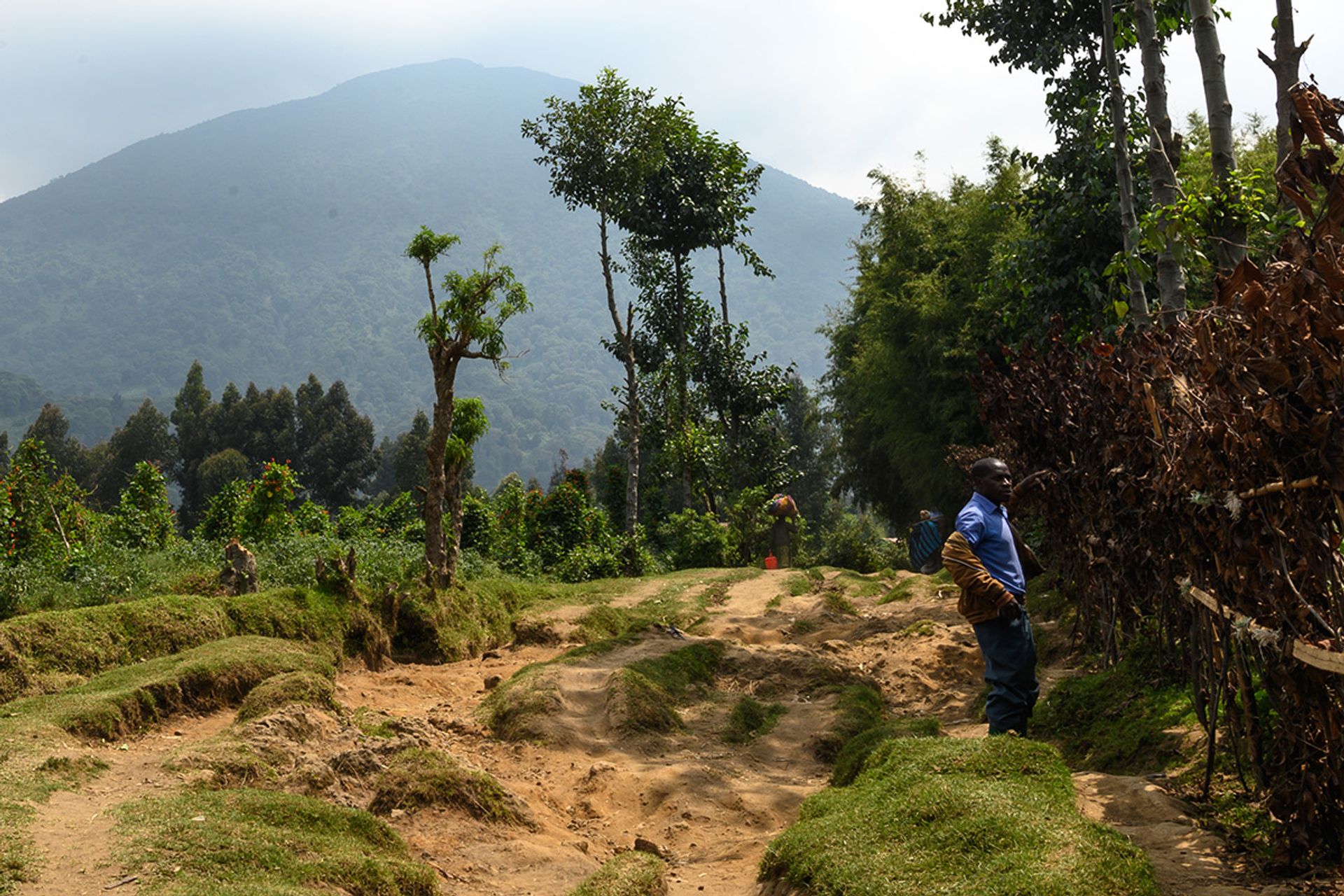
“The chimpanzees come in the day and eat our crops in front of our eyes,” said Mr Ndayambaje.
More than 30 people are needed to tend to one potato farm. It takes up to four months to cultivate three tonnes of produce.
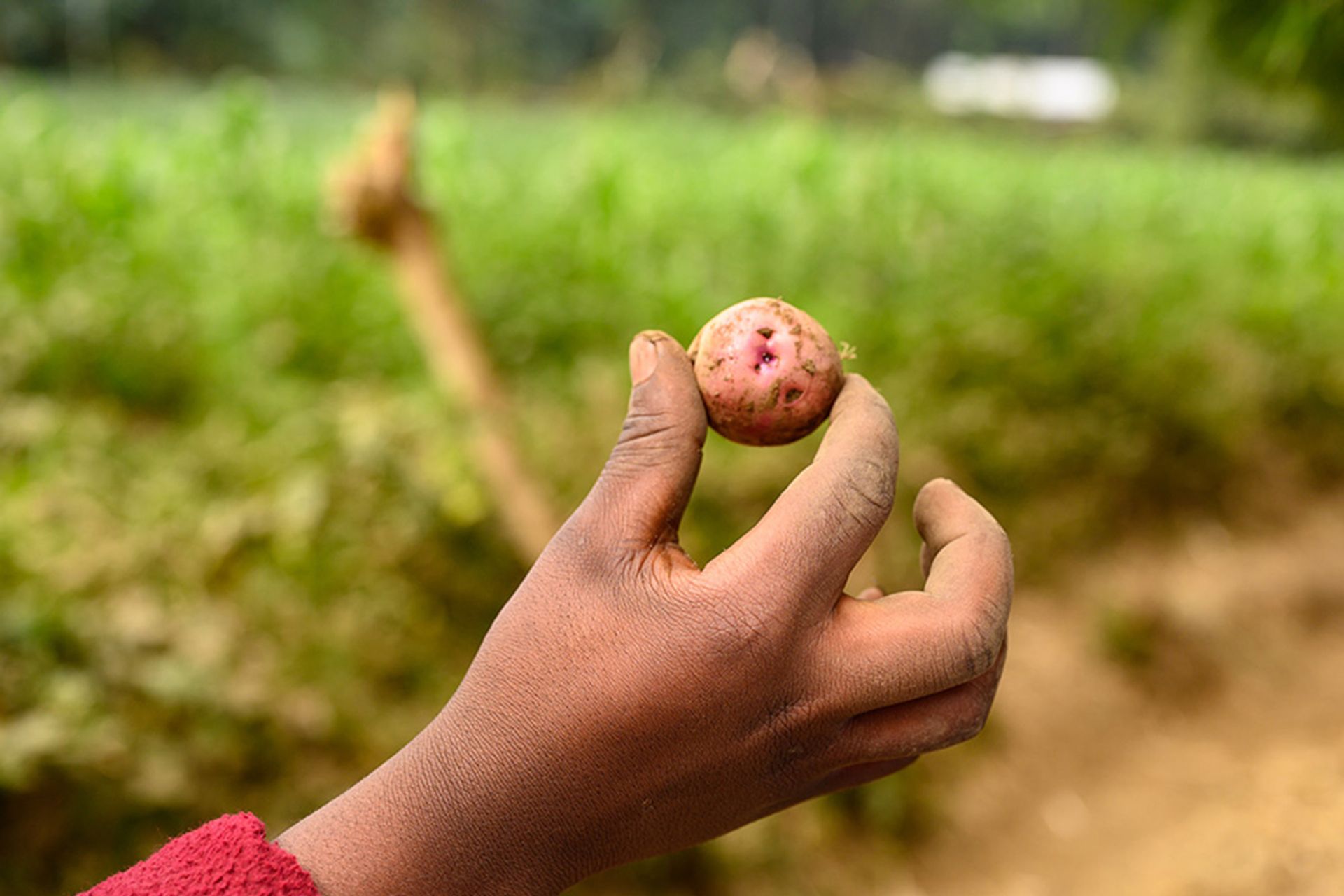
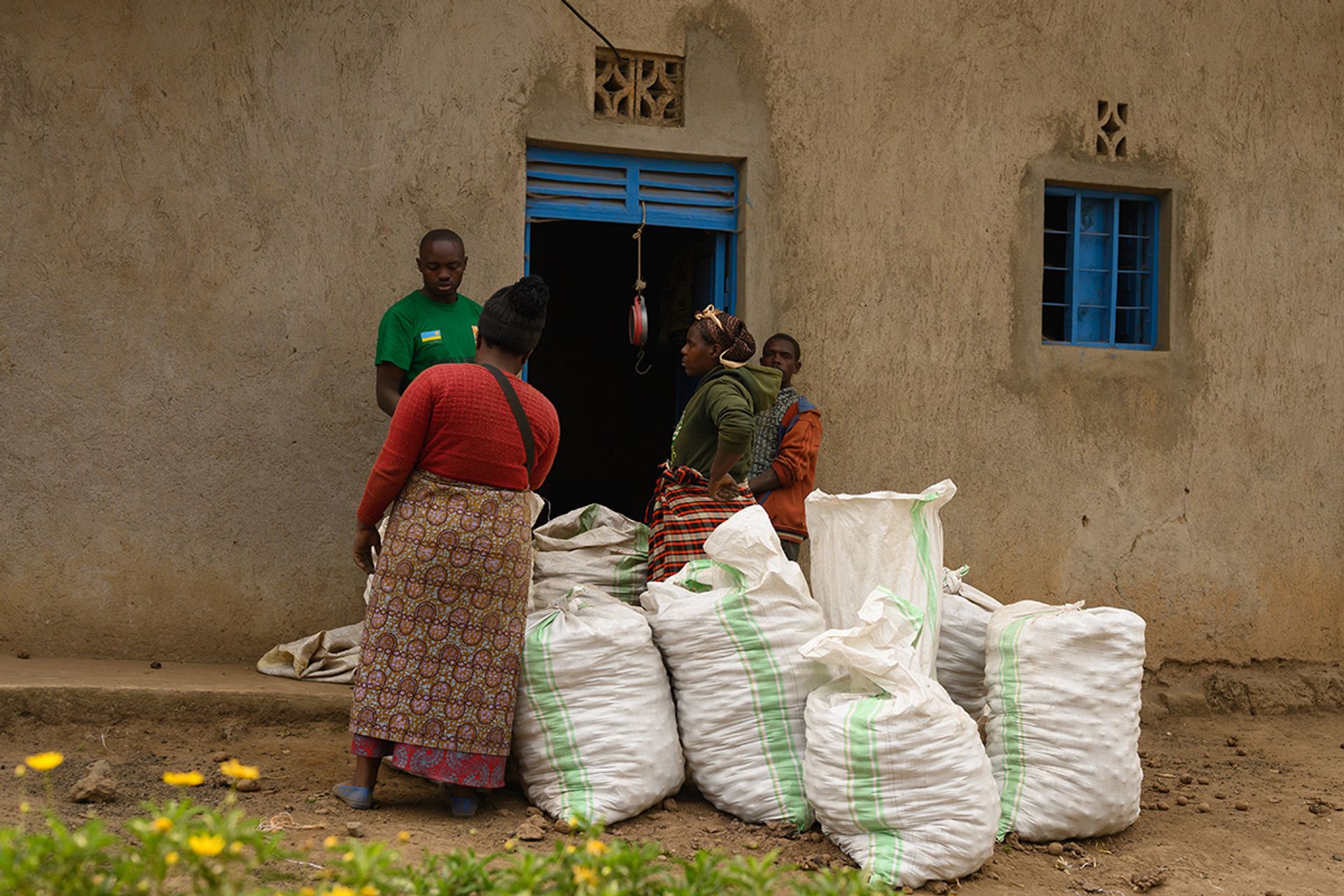
But this hard work can be wiped out by animals overnight.
Farmer Moise Maniriho, 20, said he loses about 500kg of produce every harvest.
The villagers have devised a system to protect their crops.
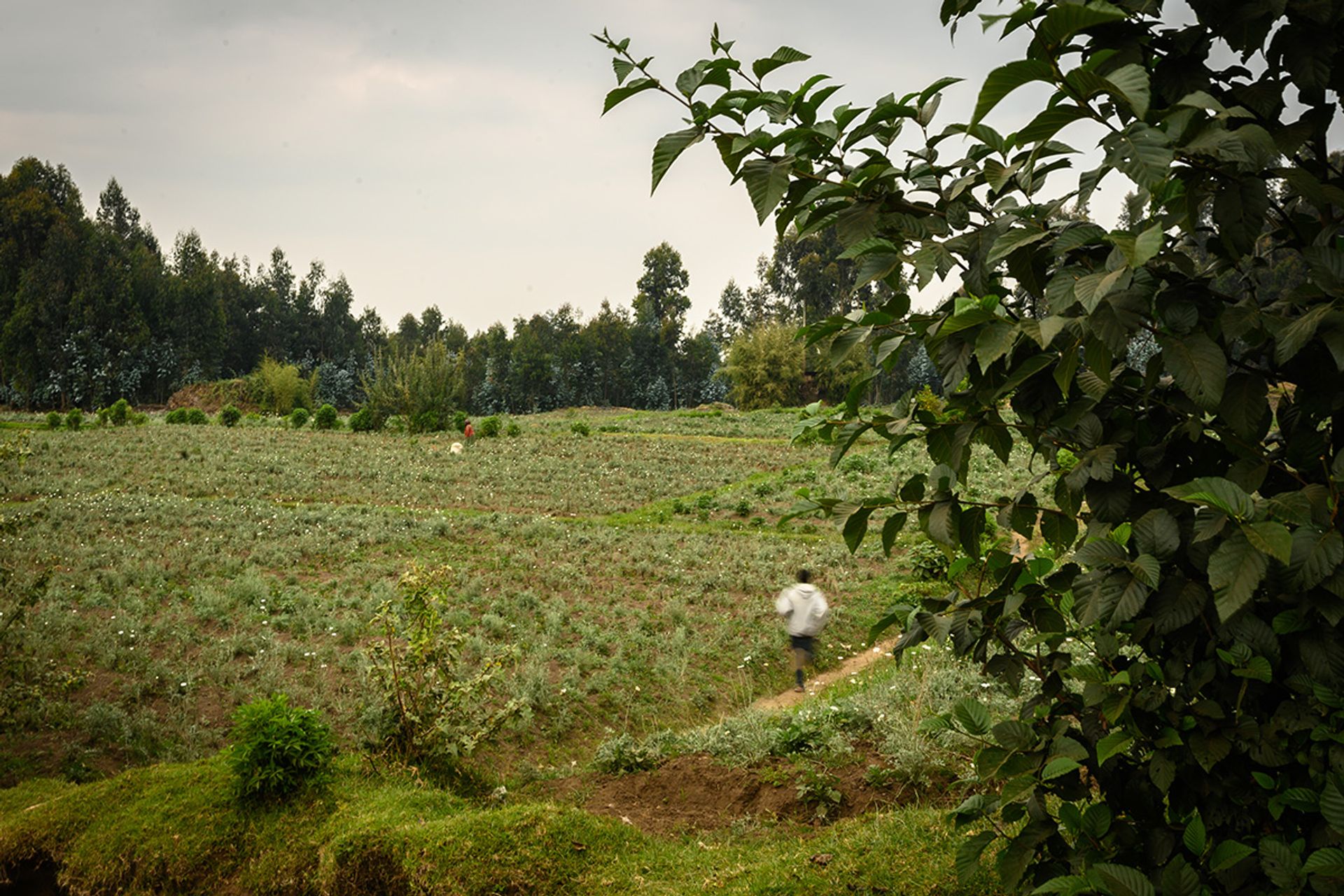
During the day, two people monitor the area.
At night, five people keep a lookout.
These so-called night-walkers work in darkness and are at high risk of coming face to face with buffaloes, which often stray from the park at night.
“The buffaloes killed someone just two months ago,” said Mr Maniriho. He added that the animals are so strong that humans are helpless when faced with the beasts. Hence, the villagers scream, shout and beat drums to alert others of the animals’ presence.
When a buffalo is spotted, villagers are not allowed to touch or harm it, even if it is dead. They must wait for the authorities to take the animal away.
To resolve this, the government has stepped in.
In 2021, it embarked on a plan to expand Volcanoes National Park by about 23 per cent.
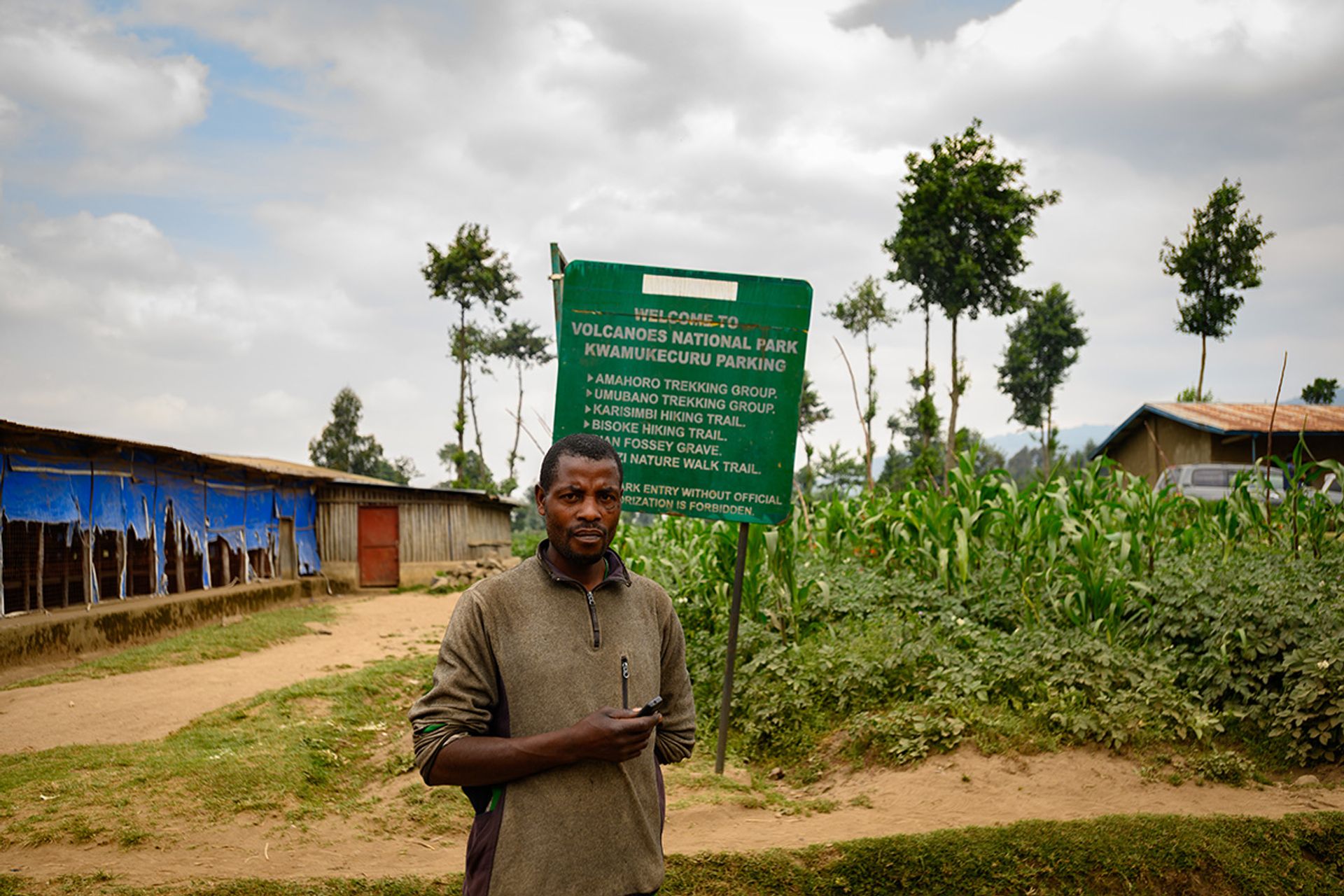
The expansion will add a 6,000ha buffer zone – six times the size of Pulau Ubin – between the park and the village.
While this will address the issue of wildlife destroying crops, some 3,000 families and farmers living near the park border will have to move.
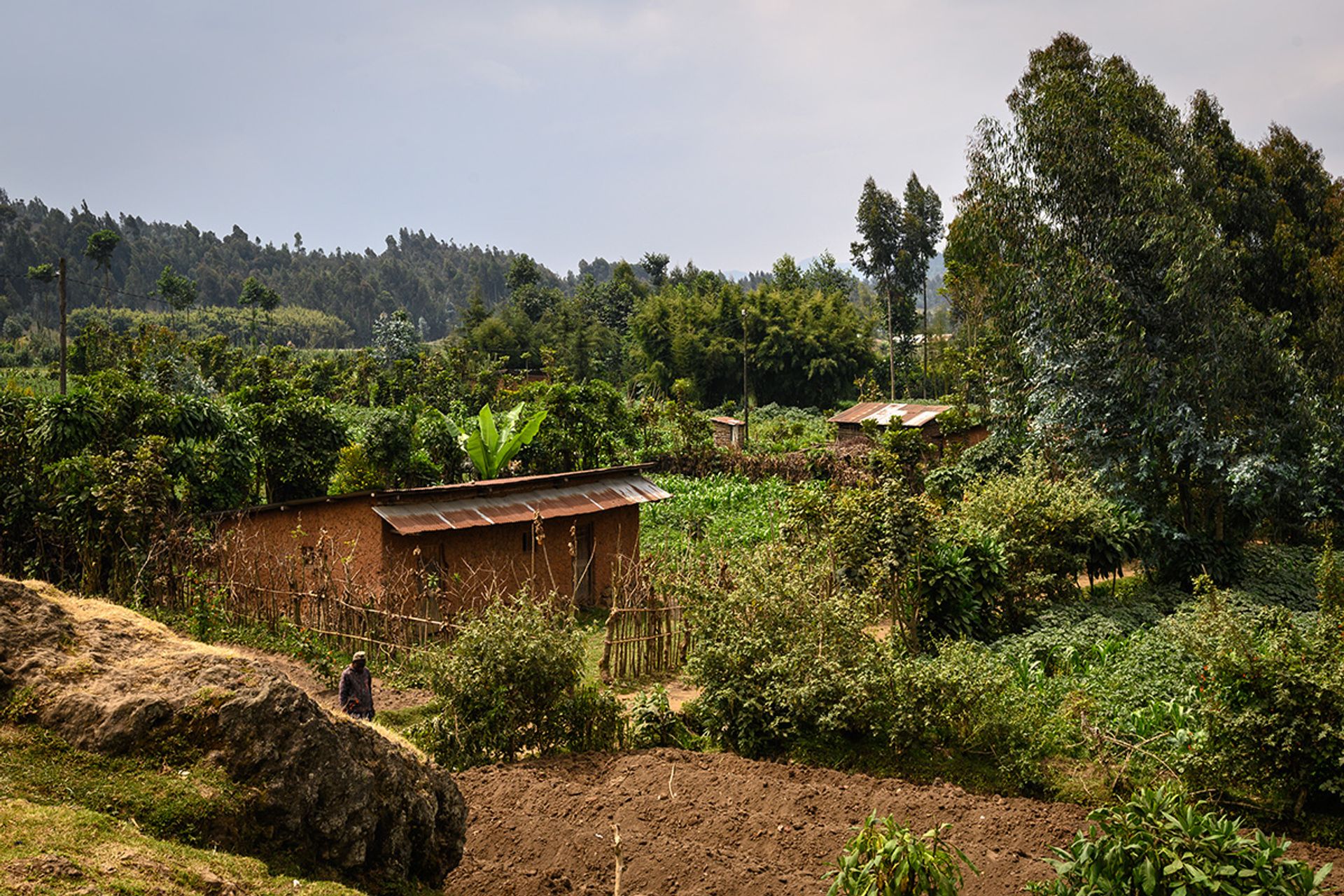
Rwanda Development Board (RDB) will compensate them with cash, housing and some land.
But the timeline for this is not clear.
Many feel unsure of what the future holds.
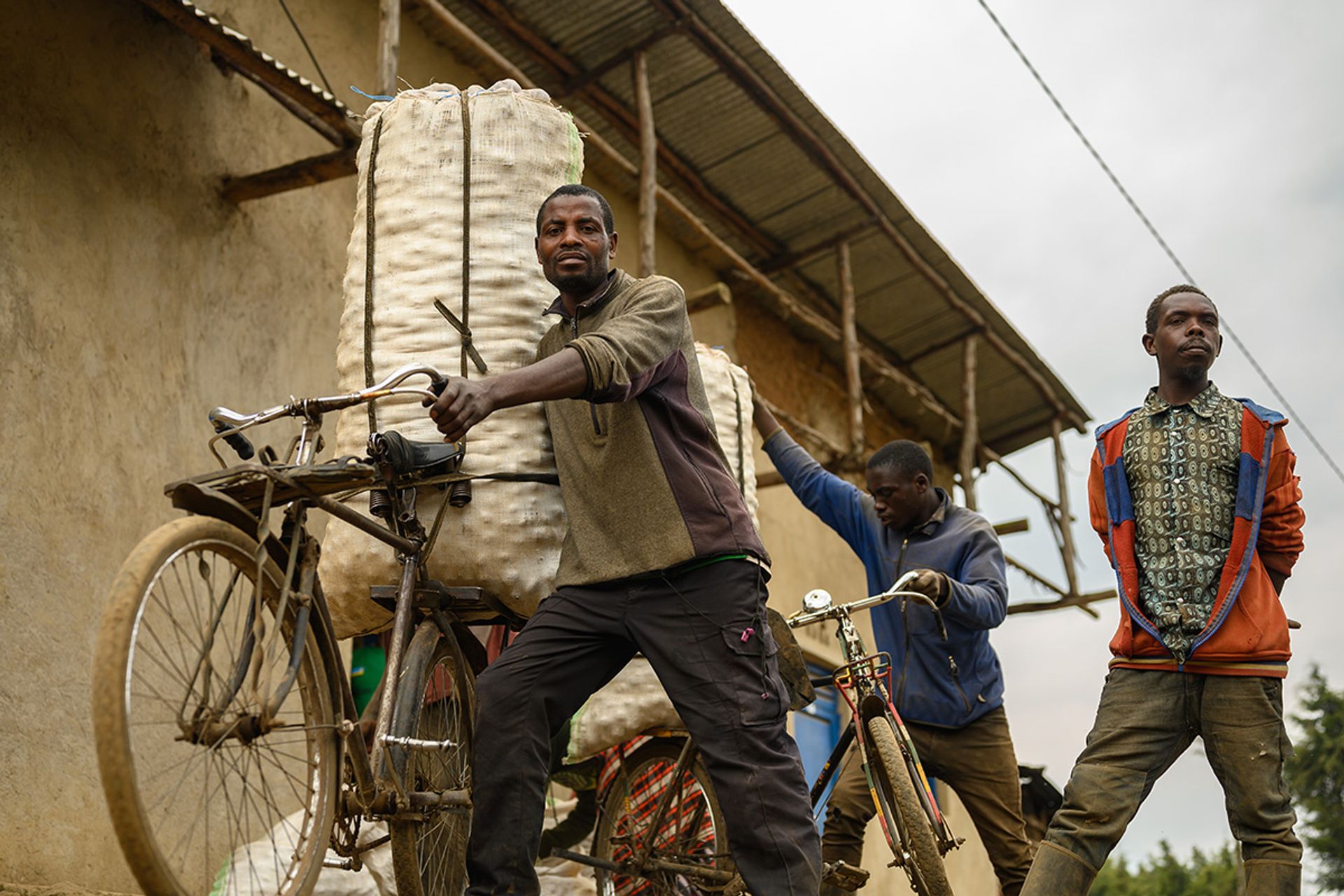
Being close to the volcanic range benefits farmers like Mr Innocent Munyawera, 38, as the fertile soil and low temperatures are crucial for growing Irish potatoes.
UNCERTAIN FUTURE
“Life in a new area is unpredictable. We wonder if we will ever do potato farming again,” said Mr Munyawera.
Locals like Mr Isiraheri Tuyizere, 21, and Mr Jonata Ruberangabo, 30, said the animals attract tourists, giving them jobs.
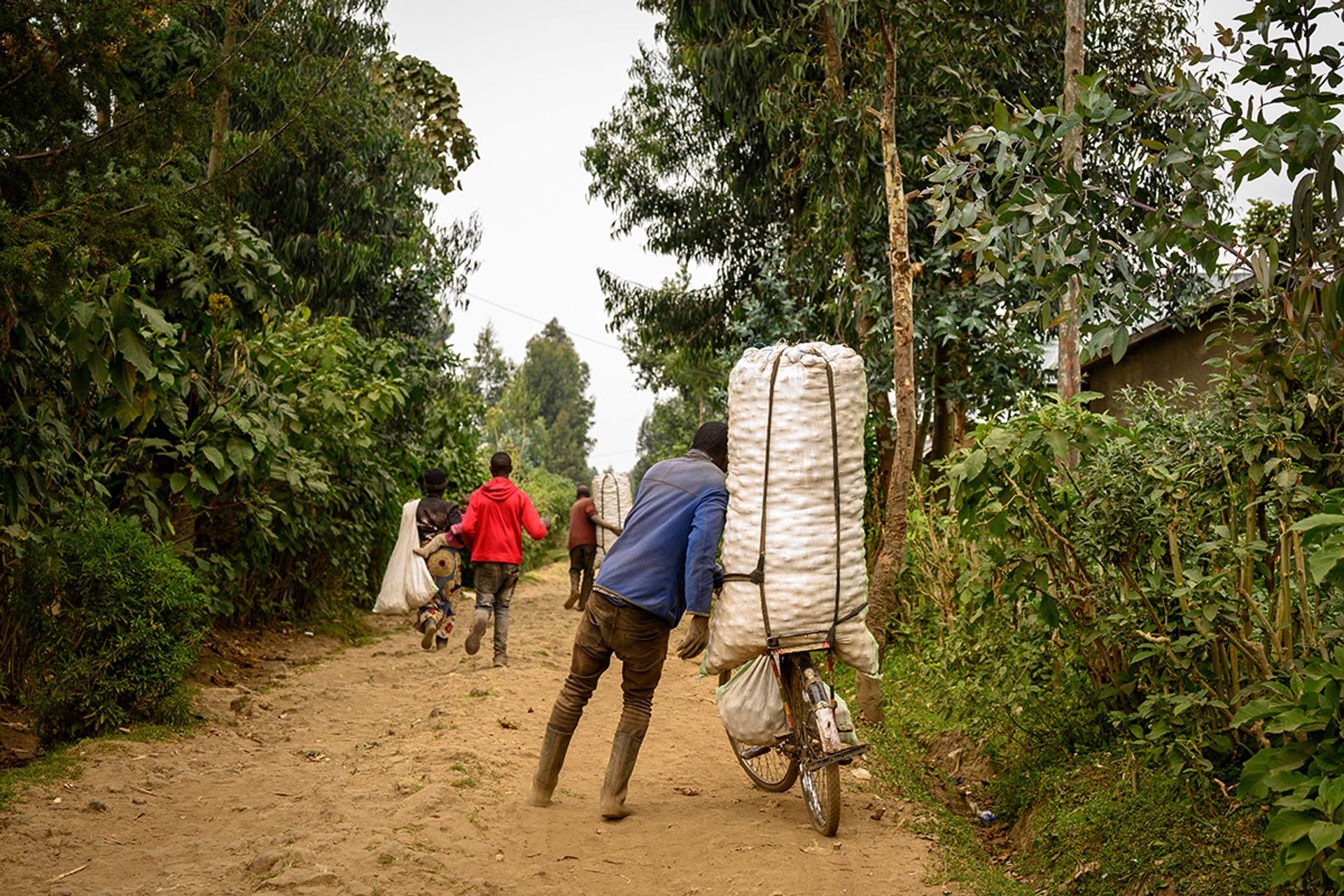
The pair work as porters, transporting bricks up the volcanoes to be used in building various structures.
“Back then (before tourists started coming), such jobs didn’t exist, and because people didn’t have other things to do besides farming, they turned to poaching,” said Mr Ruberangabo.
One of the poachers was Mr Emmanuel Emmy, who began poaching at 15 when he dropped out of secondary school.
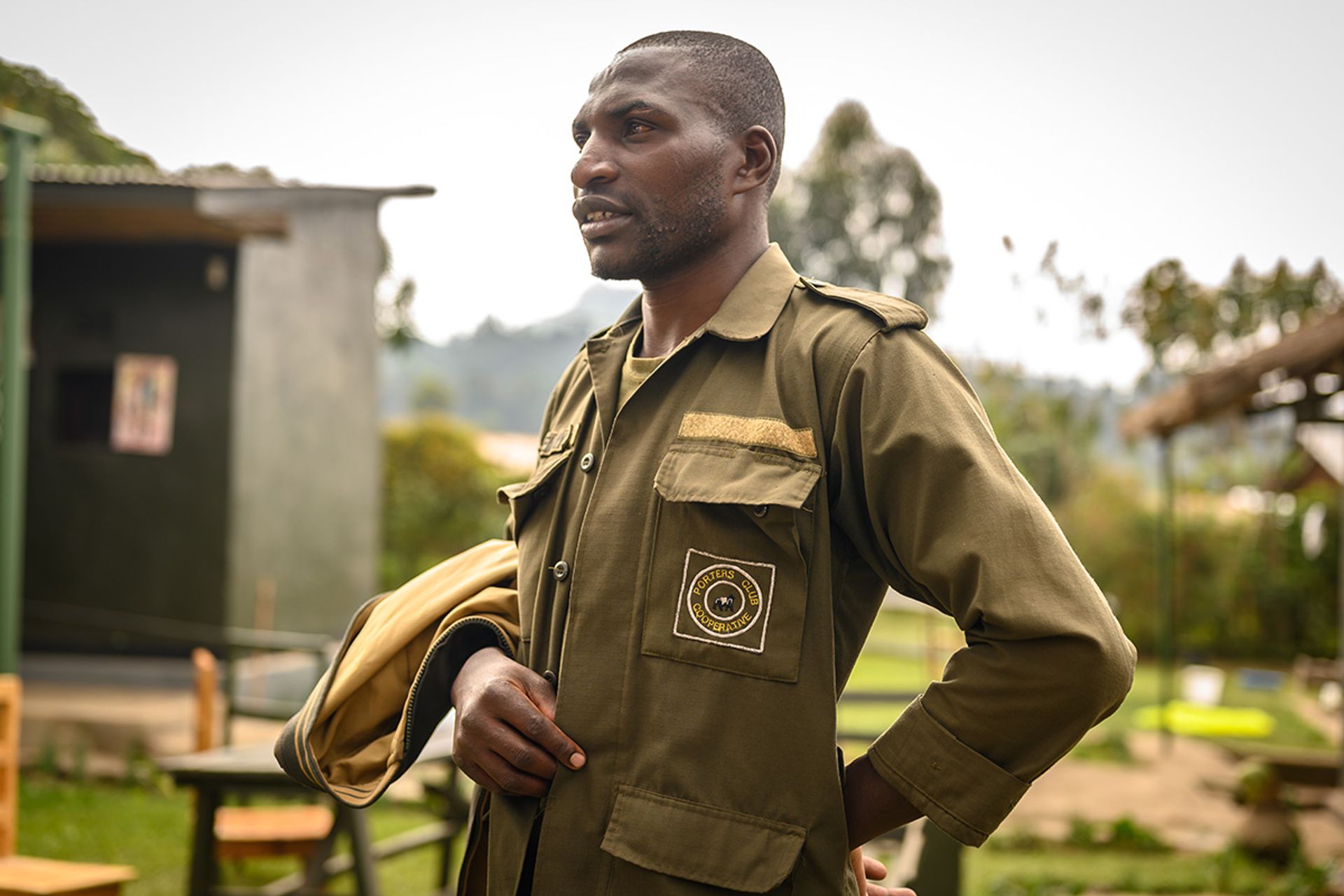
Now, at 38, he works as a porter.
He also attends a school set up by the RDB, where participants learn about the laws and impacts of poaching.
Mountain gorillas were critically endangered in the 1980s because of poaching and agricultural expansion. However, conservation efforts have boosted their population. Their numbers have grown fourfold to about 1,000 today.

About 10 per cent of the income generated from gorilla tourism goes to villages such as Kinigi.
Mechanic Sadi Iradukunda, 28, who lives in a nearby town, said he benefits from this as well.
He pays only 3,000 Rwandan francs (S$3.50) a year for medical coverage. “Without the gorillas, the government can’t take care of the people,” he said.
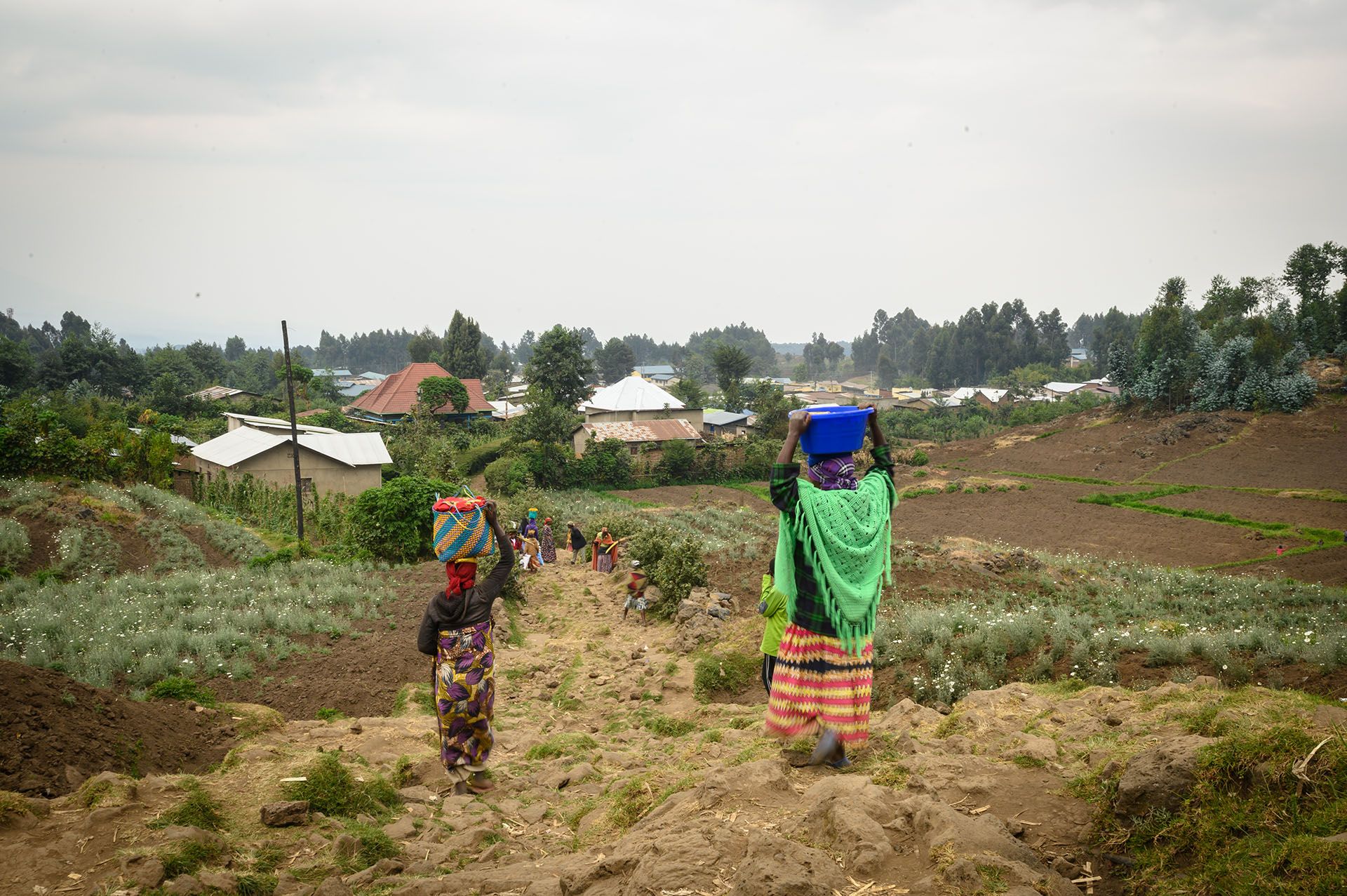
Farmer Maniriho said: “If we had a choice, we would choose to remain here. For us, staying near the volcanoes is the best thing we can do.”
Ivy Chok is a final-year communication studies student at Nanyang Technological University’s Wee Kim Wee School of Communication and Information in Singapore. Her report on Rwanda’s wildlife and human conflict is part of the school’s Going Overseas for Advanced Reporting (Go-Far) overseas reporting programme.
The Go-Far 2023 team will present their collection of news features and photographs from their trip to Rwanda at the Asian Civilisations Museum on Nov 12.
For more information, visit @gofar.wkwsci.